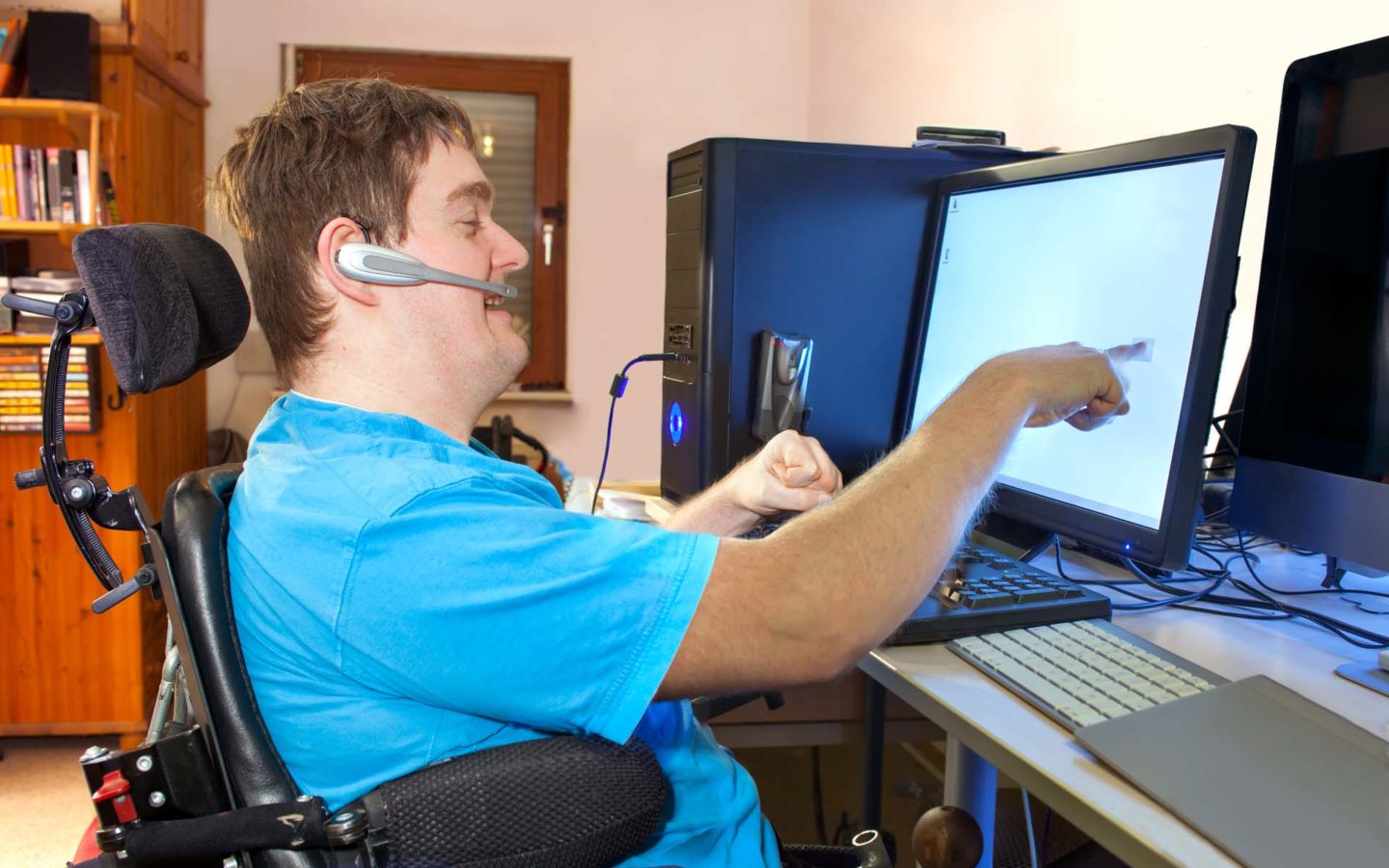Understanding the policy landscape
We have explored policy approaches to technology and care across the four UK nations, and further afield, as well as in-depth examination of local authority approaches, in collaboration with the Care Ecosystem team. Key outputs include:
- Whitfield, G., Hamblin, K. (2025) ‘Thanks to technology’: discourse, care and technology in England. Ageing and Society. Published online 2025:1-27. https://doi.org/10.1017/S0144686X2400059X
- Hamblin, K. and Whitfield, G. (2025). Working Paper 5: On hold: the Analogue-to-Digital Switchover and telecare.
- Whitfield, G. (2023). Who cares about data? Tensions between public trust and private interests in health and social care
- Hamblin, K. and Lariviere, M. (eds.) (2023). Care Technologies for Ageing Societies: An International Comparison of Care Systems, Bristol: Policy Press.
- Wright, J. and Hamblin, K. (2023). Technology and Adult Social Care in England, in Hamblin, K. and Lariviere, M. (eds.) (2023). Care Technologies for Ageing Societies: An International Comparison of Care Systems, Bristol: Policy Press.
- Whitfield, G. and Hamblin, K. (2023) Technology and social care: key areas of policy focus in Scotland, Wales and Northern Ireland (2019-2022). Centre for Care Working Paper 3, CIRCLE, Sheffield: University of Sheffield.
- Whitfield, G., & Hamblin, K. (2022). Technology in social care: spotlight on the English policy landscape, 2019-2022. Centre for Care Paper 1, CIRCLE, Sheffield: University of Sheffield.
A key area of our work has been focused on developing understanding of national policy developments and debates related to technology and care, resulting in a range of outputs:
- Artificial Intelligence – AI – is an area of increased interest from policymakers, care providers and practitioners. We have produced a book chapter and blog on this topic:
- Whitfield, G., Hamblin, K. and Wright, J. (2024). AI in Care: a solution to the ‘care crisis’ in England? in Paul, R.; Carmel, E. and Cobbe, J. (eds.). Handbook on Public Policy and Artificial Intelligence, Cheltenham Spa: Edward Elgar.
- Kate Hamblin, Grace Whitfield and James Wright (2025). AI in care: Augmentation or depletion? Transforming Society.
We have also contributed to a range of evidence submissions on technology, digital inclusion and the digitisation of social care.
The impact of digital exclusion
Increasingly, we ‘go online’ to access information, services, support and leisure. In the public sector, there is a focus on the ways digitalisation can enhance services- for example, the NHS 10 year plan has emphasis on ‘analogue to digital’ with the NHS app, and with recent debates around Digital ID cards. Social care is no different – social care services and provision are increasingly encouraged by policy initiatives, such as the funding for Digital Social Care Records. However, some groups face challenges related to digital exclusion, and we have explored this issue across several projects in collaboration with colleagues from across the University of Sheffield, supported by the Crook Public Service Fellowship and Research England Higher Education Innovation Funding.
Digital exclusion and unpaid carers in South Yorkshire
With Crook Public Service Fellowships and the ESRC funding and in collaboration with Centre for Care Associates Dr Efpraxia Zamani (Business School, Durham University), Dr Laura Sbaffi (Information School, University of Sheffield), Dr Rachael Black (Knowledge Exchange Lead, University of Sheffield), Prof Kate Hamblin (Centre for Care and CIRCLE, University of Sheffield) examined the experience of digital exclusion by unpaid carers in the South Yorkshire region: https://centreforcare.ac.uk/publications/digital-exclusion-report-2023/
Digital Poverty in South Yorkshire
With Research England funding, Dr Efpraxia Zamani (Durham University Business School) and Dr Sara Vannini (Information School, University of Sheffield) developed an online heatmap of the South Yorkshire region that helps identify and analyse pockets of digital poverty. The Centre of Care supported the expansion and updating of this online tool with data pertaining to unpaid care.
https://sheffield-university.shinyapps.io/Digital-Poverty
Digitalisation of Social Care and the Implications for Older Unpaid Carers
This project was a knowledge-exchange collaboration between the Universities of Sheffield and Durham, Carers UK and the Good Things Foundation, funded by HEIF, with the objective to identify the implications of the digitalisation of care for unpaid carers. Summary policy reports have been produced by Dr Anastasia Rousaki (IMPACT, University of Sheffield), Dr Laura Sbaffi (Information School, University of Sheffield), Dr Efpraxia Zamani (Durham University Business School), Professor Kate Hamblin (Centre for Care and CIRCLE, University of Sheffield) and Dr Rachael Black (Knowledge Exchange Lead, University of Sheffield).
The implications of technology for the care workforce and care work
In collaboration with the Care Workforce Change Research Group, we have conducted in-depth case studies with care providers to explore:
- What digital technologies are being used in care work?
- What are their implications for care work and the practice of care?
To date, we have produced the following outputs:
- Whitfield, G., Kispeter, E., Hamblin, K., & Burns, D. (2025) How the care workforce navigates the digital ‘skills gap’: problems and opportunities from policy to practice. Frontiers in Sociology, 10, 1552672.
- Kate Hamblin, Grace Whitfield, Diane Burns and Erika Kispeter. (2025). Investing in digital care skills: whose skills and why?
Technologies that Matter
Technologies That Matter explores how people with experience of care use technology in their everyday lives – and what this means for living a good life. It aims:
- To co-produce research into the lived experience of technology and care.
- To understand if and how people who receive care and support integrate technology into their everyday lives to enhance wellbeing.
- To develop evidence that helps policymakers, practitioners, and providers move beyond generalised narratives about ‘technology and care,’ towards approaches that are equitable, responsive, and grounded in lived experience.
- To share learning from our co-production journey to support other researchers, organisations, and communities engaging in similar work.
Research questions:
- What digital technologies are people using to live their best lives, and how and why are they using them?
- How do people adapt, blend, or reshape technologies to create outcomes that matter to them?
- Do these technologies open new opportunities, barriers, benefits, or risks?
- How do technologies shape family care relationships, paid care, and employment?
- Who can use technologies to live well, and who is left out or exposed to harm?
Working with our Design and Methods Group (including people with lived experience of care and support), we co-designed a longitudinal research approach that combines in-depth interviews, diaries and creative methods. Interviews and other data generation activities were completed mid-2025, and we are now in an extended analysis and outputs-development period.
A key area of collaboration has included the co-design of the ‘Mind the Gap: Tackling Digital Exclusion Board Game, which has been ‘on tour’ to various events. Members of the Design and Methods Group supported the development of the game and are part of expert panels at events where the game is played.
What next?
Since May 2025, we’ve broadened our focus to explore innovation more broadly – from new models of care and ways of working to the use of digital technologies in care, focusing on three priority areas:
- The implications and inequalities associated with innovation and digital technologies
- Understanding and foregrounding lived experience
- The drivers and barriers to innovation and the use of digital technologies in care
Click here to learn more about our future research on the Digital Care and Innovation theme page.




